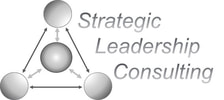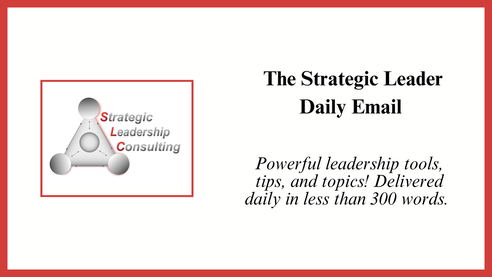|
Colleagues,
Yesterday I shared an example of a 5-minute coaching (5-mc) session and noted that there was a golden nugget. The session went like this: Me (the coach): I really enjoyed seeing you teach today. Tell me, what did you think went well? Teacher: Students were really engaged and learned the topic. Me: What is something that surprised you? Teacher: One of the students who is usually quiet was really engaged and did better than I would have expected. Me: That’s wonderful! Is there anything that you would do differently? Teacher: I don’t think so. I was using a new teaching strategy and I need to do it more. Me: I’m glad you had so much success. I look forward to being able to visit again soon. The golden nugget was in the answer to the question “what surprised you?” The teacher noted that a particular student performed better than normal. If you aren’t an educator, you can think of this result as being a better outcome for a patient or a more satisfied customer or very successful sales call. This is something to revisit later by asking the teacher: What did you do that helped the student be more successful? In other words, what did the person do that improved the outcome? Asking this question helps people identify successful practices and connect them to positive outcomes, thereby increasing the likelihood that the person will use those effective practices again! Reflect: How could I build 5-minute coaching into my daily work so that I was consistently using it with my people? Bonus: If this has benefited you, please consider “thanking” me by sharing an example. You can click here to email me right now. Do good and be well, Frederick
0 Comments
Colleagues,
Let’s look at an actual example of a 5-minute coaching (5-mc) session. I was training a group of future school administrators on how to do 5-mc by modeling the practice with one of the participants: Me (the coach): I really enjoyed seeing you teach today. Tell me, what did you think went well? Teacher: Students were really engaged and learned the topic. Me: What is something that surprised you? Teacher: One of the students who is usually quiet was really engaged and did better than I would have expected. Me: That’s wonderful! Is there anything that you would do differently? Teacher: I don’t think so. I was using a new teaching strategy and I need to do it more. Me: I’m glad you had so much success. I look forward to being able to visit again soon. Reasons why 5-minute coaching is so powerful:
Within the example above, there is a golden nugget of information. Can you find it? Tomorrow we will look at how to follow up on that nugget. In the meantime, please engage in a 5-minute coaching session today! It will be worth it, I promise. Do good and be well, Frederick Colleagues,
Yesterday I encouraged you to think about some strategies for helping others grow. I’d love to know what you came up with, but today we are focusing on my number one strategy for growing people: 5-minute coaching. If I could apply just one strategy for growing my people, it would be to engage in 5-minute coaching on a daily basis. Five-minute coaching has five steps:
Tomorrow we will look at why this practice is so powerful, but I have a challenge for you today. Please, engage in at least one 5-minute coaching session. Try it! The only cost is five minutes, and the only risk is losing five minutes. By practicing today, you’ll get more out of this email tomorrow. If you aren’t going to engage in a 5-minute coaching session today, why not? If you can’t spare five minutes to help someone grow, what is your leadership really about? I don’t mean to offend you, but it is a fair question. If you can’t take five minutes to help someone grow, how is your organization going to get better? Do good and be well, Frederick Colleagues,
We are often taught to set goals and then develop a plan for achieving them. Sometimes this works, but many times plans become insufficient. Changing conditions or unanticipated outcomes can easily render plans ineffectual or even useless. I’m not saying you shouldn’t plan, but along with your plans, try identifying some core strategies. Strategies are the things that you can do daily that will help you achieve your goals. If a plan is a roadmap to achieving a goal, strategies are the vehicle for executing the plan. Even if the road map changes, we will still need a vehicle for traveling the route. In other words, strategies can remain useful even if the plan falls apart. I hope you have a plan in place for helping your people grow this year. More importantly, I hope you have strategies for achieving your plan. What are your core strategies for helping your people grow this year? If you have some, consider sharing them with me. If you don’t have any, make sure you read tomorrow. Do good and be well, Frederick |
Categories
All
Archives
July 2024
|


 RSS Feed
RSS Feed